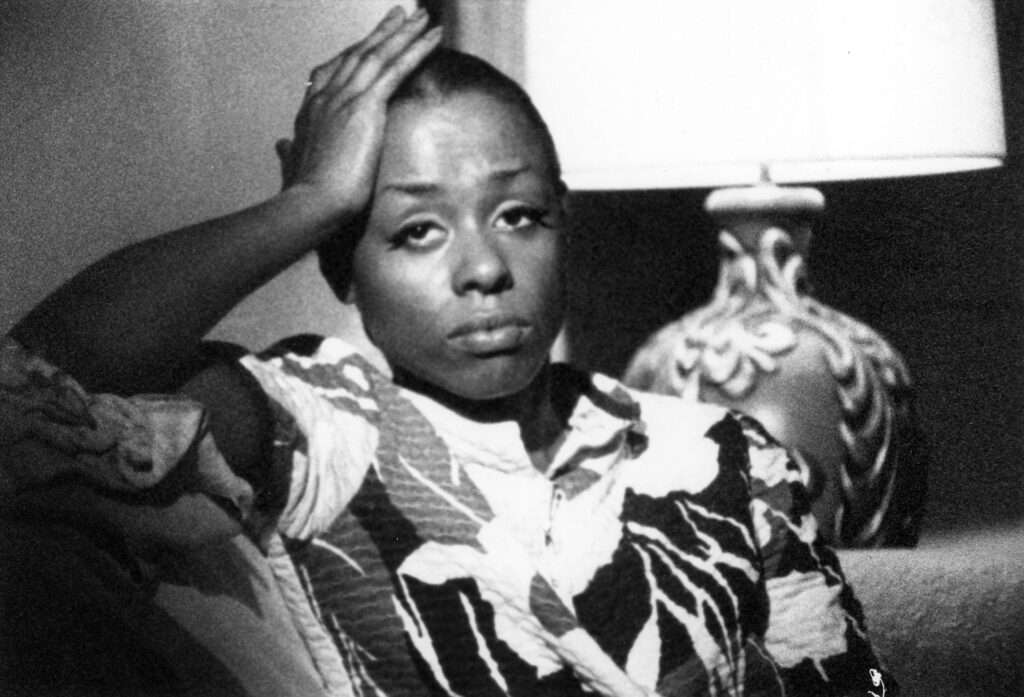
Kaycee Moore, Actress in Black Directors’ Seminal Films, Dies at 77
Kaycee Moore, whose nuanced acting documented Black American life in movies by a group of young, Black independent directors in Los Angeles in the 1970s and ’80s, died on Aug. 13 at her home in Kansas City, Kan. She was 77.
The death was confirmed by the Watkins Heritage Funeral home. No cause was given.
Ms. Moore made only a handful of movies, but they had an outsize impact on American cinema. Her portrayals defied the traditional roles for Black women of her era, in action-packed or trauma-filled blockbusters, and instead laid bare the interior lives of her characters.
Her debut came in “Killer of Sheep” (1978), the director Charles Burnett’s first feature. (It was his thesis for the film program at the University of California, Los Angeles.) Mr. Burnett was a member of the community of independent filmmakers that would later become known as the L.A. Rebellion.
Their movies, unlike many mainstream Hollywood pictures, humanized Black characters and celebrated Black family life, though they did not shy away from hardship. Ms. Moore’s characters in “Killer of Sheep” and “Bless Their Little Hearts” (1983) were both struggling wives who wanted the best for their children and husbands in a system portrayed as designed to keep Black Americans down and out.

“Killer of Sheep” follows a Los Angeles slaughterhouse worker whose leading of lambs to their death takes on biblical resonance. Ms. Moore played the worker’s unnamed wife as she raises their family in the blighted Los Angeles neighbourhood of Watts. Critics lauded the film’s stark visual style, and The Sacramento Bee called Ms. Moore’s performance “incandescent.”
Upon the film’s rerelease in 2007, the critic Stuart Klawans, writing in The Nation, praised the “profoundly moving” work of Ms. Moore and Henry G. Sanders, who played her husband. “Their lives are denuded in many ways, materially impoverished and spiritually numbed,” he wrote, “but for all that, they have the grandeur of unchallengeable fact.”
“Bless Their Little Hearts” came next for Ms. Moore. She played Andais, the wife of the protagonist, Charlie (Nate Hardman). The film, directed by Billy Woodbury and written by Mr. Burnett, charts Charlie’s struggle to find permanent work and the temptations he faces to turn to crime, all set against the backdrop of a newly begun extramarital affair.
Looking back at the L.A. Rebellion films in an essay in The New York Times in 2020, the critic Ben Kenigsberg found Ms. Moore’s performance naturalistic. “She is shown in contrasting scenes riding the bus: in one, she nods off from fatigue; later, having discovered that Charlie is having an affair, she is wide-awake,” he wrote. “When the two finally fight about the fling, the scene, staged in a single take, feels utterly extemporaneous.”
Acting in “Bless Their Little Hearts” was not always easy for Ms. Moore. She recalled in the production notes for the film that the climactic argument scene, filmed in one take, included actual physical violence. But “for the most part,” she said, “it was a film set that was full of love.”

“Killer of Sheep” follows a Los Angeles slaughterhouse worker whose leading of lambs to their death takes on biblical resonance. Ms. Moore played the worker’s unnamed wife as she raises their family in the blighted Los Angeles neighbourhood of Watts. Critics lauded the film’s stark visual style, and The Sacramento Bee called Ms. Moore’s performance “incandescent.”
Upon the film’s rerelease in 2007, the critic Stuart Klawans, writing in The Nation, praised the “profoundly moving” work of Ms. Moore and Henry G. Sanders, who played her husband. “Their lives are denuded in many ways, materially impoverished and spiritually numbed,” he wrote, “but for all that, they have the grandeur of unchallengeable fact.”
“Bless Their Little Hearts” came next for Ms. Moore. She played Andais, the wife of the protagonist, Charlie (Nate Hardman). The film, directed by Billy Woodbury and written by Mr. Burnett, charts Charlie’s struggle to find permanent work and the temptations he faces to turn to crime, all set against the backdrop of a newly begun extramarital affair.
Looking back at the L.A. Rebellion films in an essay in The New York Times in 2020, the critic Ben Kenigsberg found Ms. Moore’s performance naturalistic. “She is shown in contrasting scenes riding the bus: in one, she nods off from fatigue; later, having discovered that Charlie is having an affair, she is wide-awake,” he wrote. “When the two finally fight about the fling, the scene, staged in a single take, feels utterly extemporaneous.”
Acting in “Bless Their Little Hearts” was not always easy for Ms. Moore. She recalled in the production notes for the film that the climactic argument scene, filmed in one take, included actual physical violence. But “for the most part,” she said, “it was a film set that was full of love.”
It was in the 1970s that Ms. Moore headed west to audition for Hollywood roles and met Mr. Burnett, the filmmaker who would cast her in “Killer of Sheep.” Her last major film role was in “Ninth Street” (1999), by the writer-director Kevin Willmott.
After her mother died in the 1990s, Ms. Moore took over her role as executive director of the Kansas City chapter of the Sickle Cell Disease Association of America.

Mrs Vicky m Bournel has made this magazine proud. She is not only an Author from America for Lakkars Magazine she is the Chief Editor of Lakkars Magazine for the articles.


